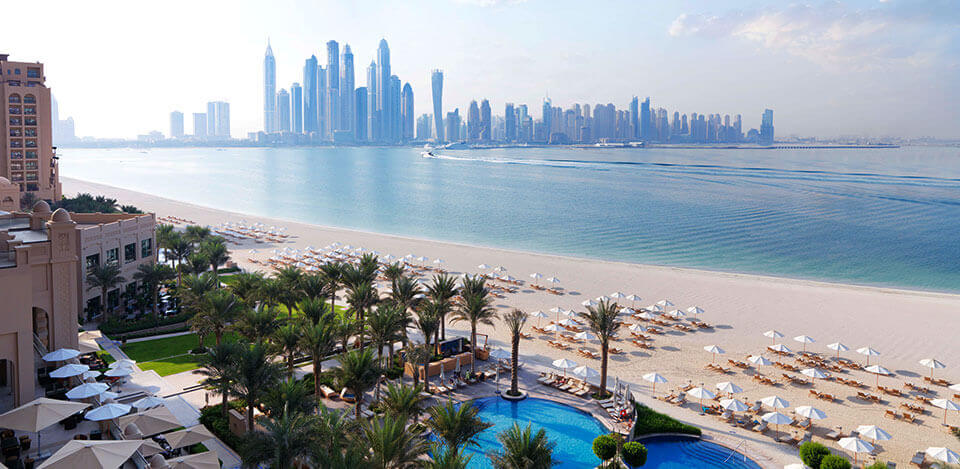
According to figures from hotel data company STR, Dubai currently has the largest hotel room pipeline of any city in the world, standing at over 50,000 rooms on an existing room count of less than 100,000. What’s more, it is concentrated at the top end of the market, with around 14,000 upper-upscale rooms (a 60 percent increase), around 13,000 upscale rooms (a 56 percent increase), and over 8,000 upper-midscale rooms (a whopping 99 percent increase) planned.
Other surveys offer similar results. Ernst & Young show an increase from 94,000 rooms at the start of 2015 to 164,000 by Expo 2020; while Lodging Econometrics suggest a construction pipeline of 194 projects in the UAE totalling 55,264 rooms.
Interestingly, although the market has generally softened in 2017, especially in terms of average rates, the impact has yet to be fully felt. In 2017 up to November, according to STR, annual room supply in Dubai grew less than six percent. So if hotel owners are starting to feel the pinch, one has to fear that the worst is yet to come.
The RevPar Squeeze
The question being asked now is whether there will be a significant downturn in RevPar in 2018/2019. Being realistic, it’s likely. No market in the world, with the exception of Las Vegas in the boom times, at least to my recollection, has added 50 percent room inventory without seeing an impact on hotel performance metrics.
Moreover, there are some strong potential headwinds for Dubai in 2018 – increased competition from new attractions in Abu Dhabi and RAK; the implementation of five percent VAT, which hotels in a weakening market may not be able to pass on to consumers; and the gradual recovery of Turkey and North Africa from internal turmoil, which had diverted tourists to the safe haven of the UAE.
Does that make it all doom and gloom? Not really. I remember asking a head of strategy for a major Dubai firm in 2009 how the emirate would fare, given the meltdown in financial and property markets and its lack of oil and gas. “We’re not worried,” he said. “Basically, if you live between Cairo and Karachi and you want to have fun, you’ll come to Dubai”.




